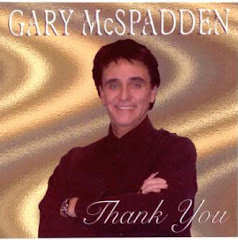Writer's Digest has a fascinating article, "The Truth About Self Publishing." It asks and answers the most pressing questions about the sport of independent publishing.
What is not covered is how YOU get YOUR books out?
What independent publishing house is the right house to work with?
When do you need to hire a publicist and for how long?
Read for yourself.
http://www.writersdigest.com/article/the-truth-about-self-publishing/
1. WHAT SHOULD I CONSIDER BEFORE DECIDING TO SELF-PUBLISH?
There are three critical factors if you’re hoping to see your self-published work widely read and/or favorably received by editors and agents:
Editorial quality. Never publish a book that has not been professionally edited. A self-publishing service rarely reviews your work to assess the quality of its content (or, more important, its market viability), and no service will undertake the revision and editing process unless you pay for it. Only you can ensure that your work has the best content, structure and organization, and it’s up to you to pay for copyediting, proofreading, indexing or any other polishing your work may require. Unfortunately, many self-published books have not undergone any meaningful editing, which can give the whole lot a bad rap.
Distribution and sales. The thing to remember about self-publishing services is that, almost without exception, they make their money on the upfront fees that you pay before even a single copy is sold. Compare their situation to that of a traditional publishing house, which must invest a significant sum of money upfront, then recoup the investment through book sales. A traditional publisher has a sales force or a distributor who pitches books to the national chains and independent stores; the same cannot be said of self-publishing services. Plus, in a self-publishing scenario, there’s rarely a supply of books to distribute and stock on store shelves because most authors use print-on-demand technology to keep costs low, printing one book at a time to fill customer orders.
Bottom line? Self-published authors need to have a way to reach their readership directly and let everyone know a book is available for purchase. Without marketing and promotion, very few sales will occur. (Of course, the same is true of traditionally published books, but with distribution in place, it’s easier for people to stumble across books on the shelf and make impulse buys.)
Cover, design and packaging. The cover (as well as the title) can be the No. 1 marketing tool for any book. The same can be said of the size, trim, price and interior features. All these factors contribute to having the right packaging to make the right sale to the right audience. Traditional publishers often have considerable in-house expertise on what kind of packaging will sell to a particular consumer, and they spend numerous hours on title, design and packaging refinement. Many self-publishing services require you take a template approach (one size fits all) for convenience and economic efficiency, which can make it difficult to compete. (Click here to learn more about how to create a successful cover package.)
Of course, if you’re just looking into self-publishing for your own gratification, perhaps to have some copies for your friends and family members, these considerations don’t apply—and you have more affordable options now than ever before. See question No. 3.
2. WILL I KILL MY CHANCES WITH A TRADITIONAL PUBLISHER IF I SELF-PUBLISH?
Of course not. Even if you publish what in hindsight is a terrible book, or you’re embarrassed by the results, no agent or editor would turn down your subsequent work if it looked like a surefire winner in the marketplace. But, you may ask, have you ruined your chances of traditionally publishing that same work?
It depends. If your self-published book sells well and looks like it could take off with traditional distribution (and you’ve probably read success stories like this, such as the one on Page 50), then agents and editors will gladly take a piece of that success. This is a huge exception to the rule, though, and no one should self-publish solely to win attention from traditional publishing houses. It’s a rare occurrence, and one that usually only happens after the author has created a quality work and dedicated countless hours to self-promotion.
3. IF I SELF-PUBLISH, WHICH SERVICE SHOULD I USE?
We can’t possibly recommend a service that works for everyone because every writer has a unique situation, a unique book, a unique set of resources and unique goals. It’s up to each writer to research the options carefully and make an informed decision. But what we can do is help you get started, so we’ve created an exclusive online directory of 60 self-publishers and the services they offer. Simply visit writersdigest.com, where more information about each one is just a click away.
4. I’VE ALREADY SELF-PUBLISHED. NOW WHAT?
If you’re wondering if you’ve made the wrong decision, it’s time to stop worrying and start focusing on either marketing the book you now have, or moving on to writing your next book.
5. SO WHERE DOES WD STAND ON SELF-PUBLISHING?
I can’t tell you how many heated discussions the Writer’s Digest staff has had about self-publishing—its advantages or disadvantages, its past and future, its advertising presence in this very magazine. As publisher and editorial director of Writer’s Digest, I can tell you this is where we stand: Our main goal is to inform and educate, so you make the right decision for your work. Self-publishing can be easy, affordable and satisfying—but marketing, selling and promoting can be difficult. Many authors enter into it without a full understanding of the challenges and of what self-publishing services can and can’t provide. We want to help you have realistic expectations and give you the tools to succeed, no matter what road you take.
Overcome Your Challenges
3 days ago








No comments:
Post a Comment